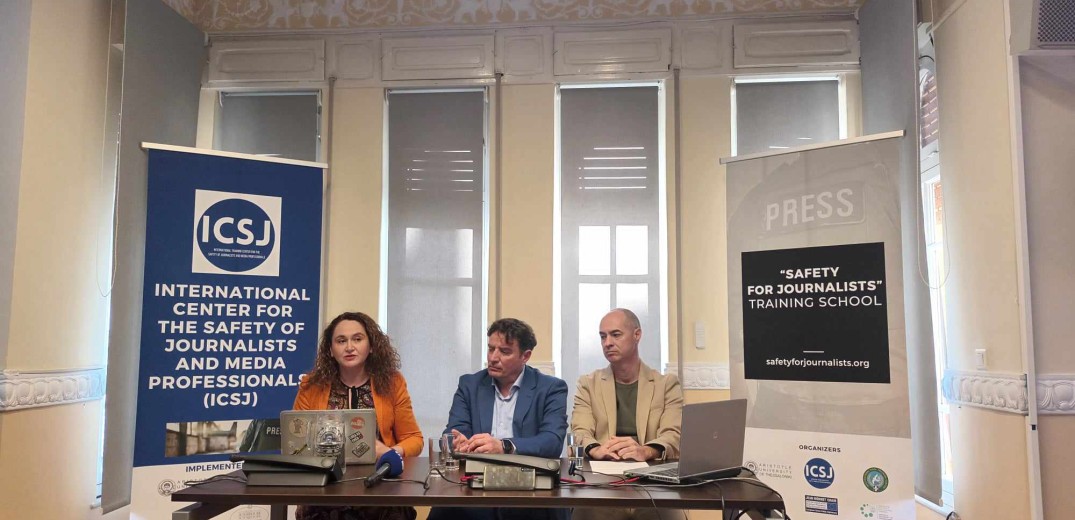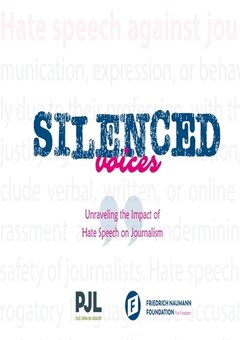MEDIA
New study reveals the impact of hate speech on journalists across Southeast Europe

A new groundbreaking study titled "Hate Speech against Journalists" unveils the challenges and threats journalists face due to hate speech in Greece, Serbia, Kosovo, North Macedonia, and Bulgaria. Conducted by leading academic and media institutions, including the Peace Journalism Laboratory of AUTH, the University of Novi Sad, Hasan Prishtina University, Center for Social Innovations BLINK 42-21, and Blue Link, the research was supported by the Friedrich Naumann Foundation for Freedom - Greece and Cyprus.
The research adopts a specific definition of hate speech as any communicative act aimed at journalists that incites, promotes, or justifies hatred, discrimination, or harm, highlighting its detrimental effects on the credibility and personal safety of media professionals. By employing a rigorous methodology that combines both qualitative and quantitative data collection along with focused discussions and the dissemination of findings through podcasts, this research aims to foster a deeper understanding of the challenges journalists face, the socio-political dynamics at play, and the urgent need for comprehensive strategies to combat hate speech.
Key conclusions drawn from the study emphasize recurring patterns of hate speech driven by political bias, ethnic or religious tensions, and the significant impact these have on press freedom and the democratic fabric of society. The research identifies a critical gap in legislative and institutional frameworks designed to protect journalists and underscores the importance of public awareness, education on media literacy, and the establishment of support networks for those affected.
MAIN CONCLUSIONS
1. Patterns of hate speech: The report has identified recurring themes or narratives used to develop hate speech against journalists. These include political bias, ethnic or religious tensions, or targeting specific areas of tension, particularly those related to political issues, fake news or investigative journalism.
2. Legislative and institutional gaps: There are deficiencies in legal frameworks or institutional mechanisms aimed at protecting journalists from hate speech. Especially after the recent adoption of the European Media Freedom Act (EMFA), it is important to promote adequate relevant legislation and develop supporting structures to address this important issue.
3. Impact on press freedom: The research sheds light on how hate speech affects media freedom in the region. Intimidation, threats or violence against journalists harms the independence of their work.
4. Social and political context: Understanding the socio-political landscape is crucial. Hate speech against journalists is influenced by wider social divisions, political polarization and historical tensions in each region.
5. Safety and well-being of journalists: Assessing the safety measures and available support schemes for journalists facing hate speech is essential. There is a need for better protection, psychological support, cybersecurity and educational programs.
6. Media literacy and public perception: Misinformation and negative perceptions (public mistrust of journalists and information) contribute to the prevalence of hate speech. Media Literacy initiatives will decisively support the role of Mass Media as a critical element in sustaining democracy.
To address these issues, the study proposes a multi-faceted approach including legal reforms, skill development initiatives for journalists, the creation of support networks, public awareness campaigns aimed at promoting media literacy, international cooperation among media and civil society organizations, and active public engagement in dialogues aimed at mitigating social tensions.
WHAT SHOULD BE DONE
1. Legal reforms: Support or strengthen laws that protect journalists from hate speech and ensure they are properly implemented.
2. Skills development: Training programs for journalists on security measures to counter hate speech. These should be developed in collaboration with Journalist Associations and Universities.
3. Support networks: Create support networks or hotlines for journalists facing threats or harassment.
4. Public awareness campaigns: Promoting media literacy and fostering a positive perception of the role of journalists in society.
5. International cooperation: Encouraging cooperation between media organizations, journalist associations, universities and international organizations to collectively address hate speech against journalists.
6. Public Engagement: Engaging communities in dialogues to address social tensions that contribute to hate speech.
During the press conference for the presentation of the findings, on February 13, 2024 Alona Tatarova, Project Coordinator of FNF Greece and Cyprus highlighted:
This research, conducted in partnership with the esteemed Peace Journalism Lab an other esteemed partners from the Balkans, under the guidance of Professor Nikos Panagiotou and his team, underscores our commitment to the principle of freedom of the press by highlighting the challenges journalists face in the Balkans - threats, insults, and smear campaigns by influential figures that endanger media freedom and liberal democracy. We hope this publication serves as a wake-up call to safeguard the tenets of informed societies, freedom of speech, justice and transparency. By fostering an environment that champions the truth, encourages open dialogue, and unequivocally condemns hate speech, we reinforce the resilience of our democracies.
This landmark study serves as a call to action for policymakers, media professionals, and the public at large, urging collective efforts to ensure the safety and well-being of journalists and to safeguard the fundamental principles of freedom of expression and democracy.

